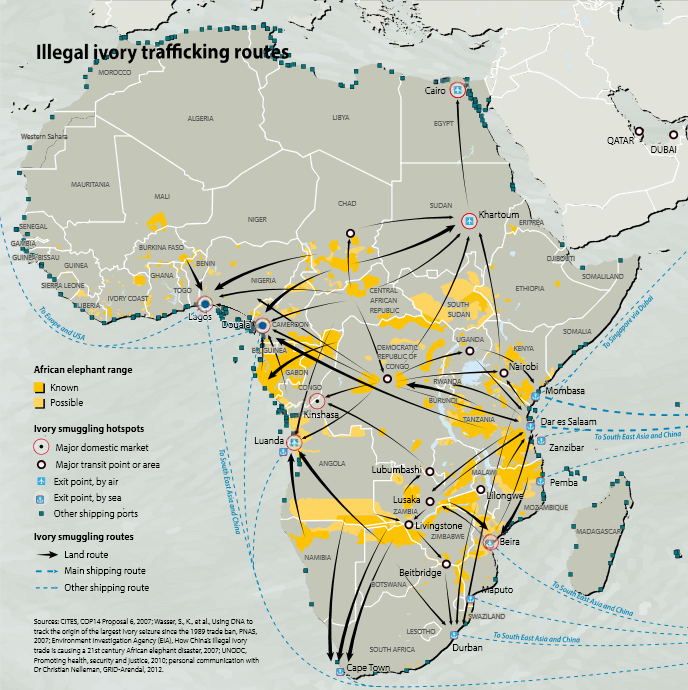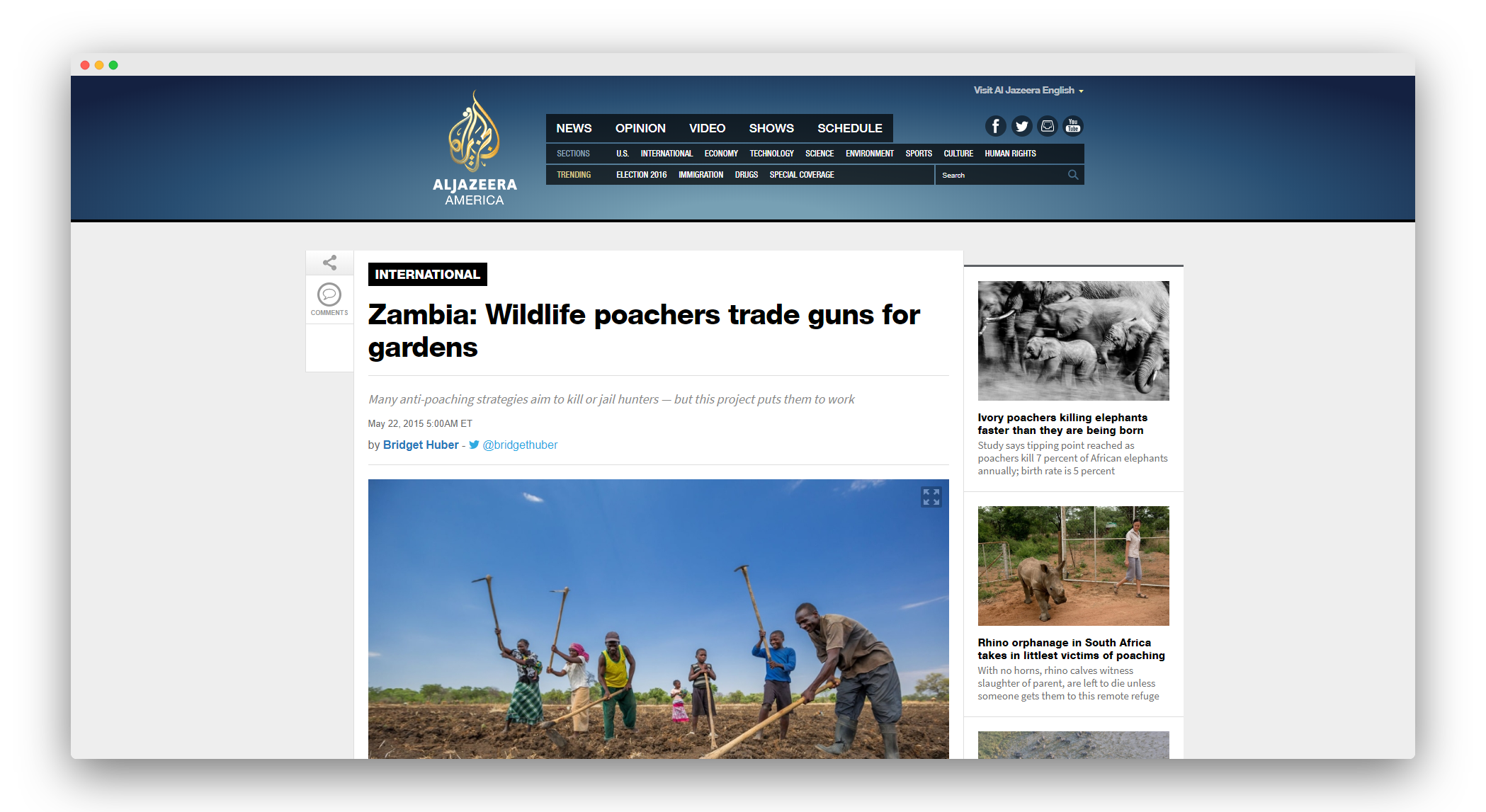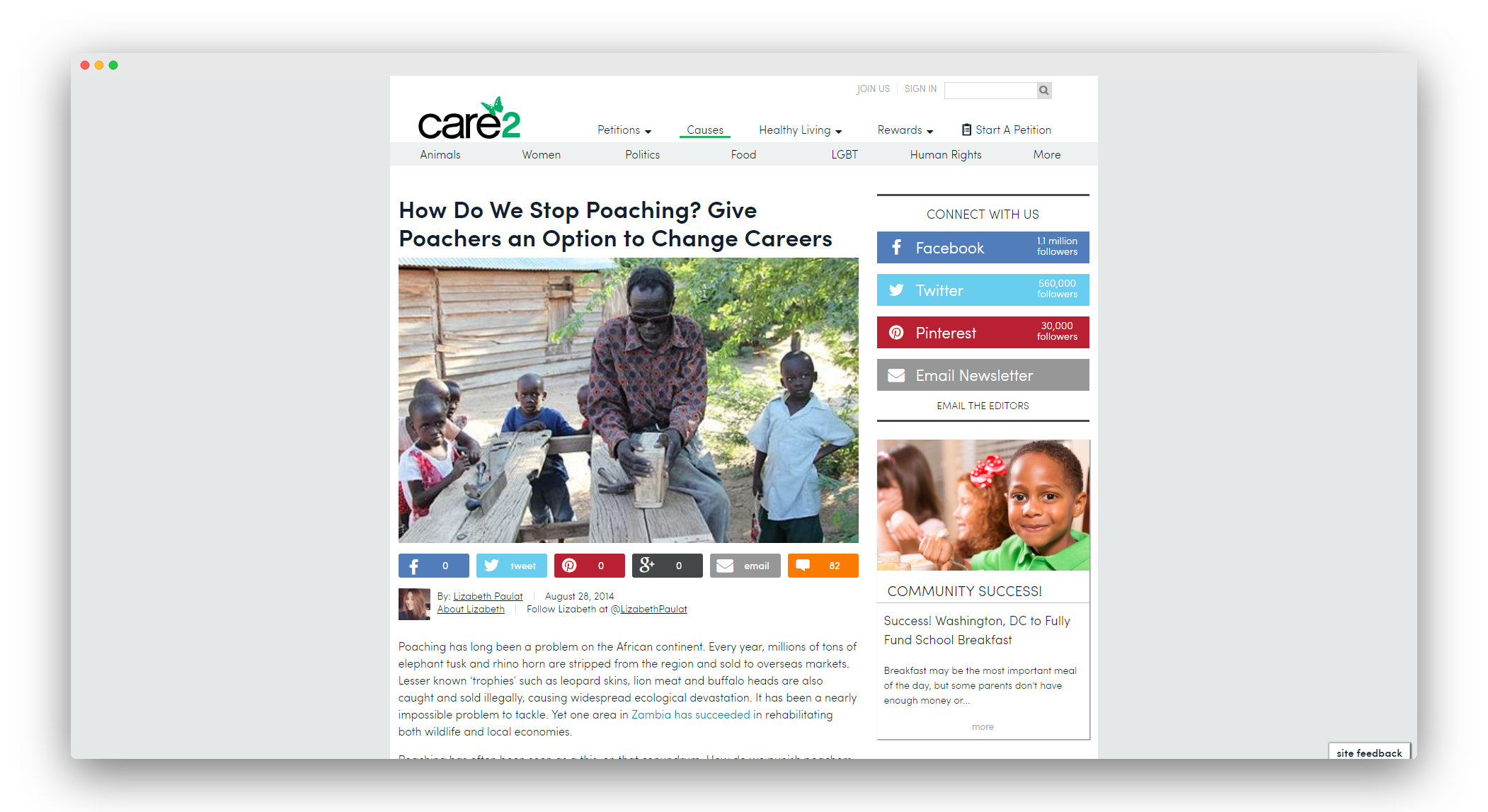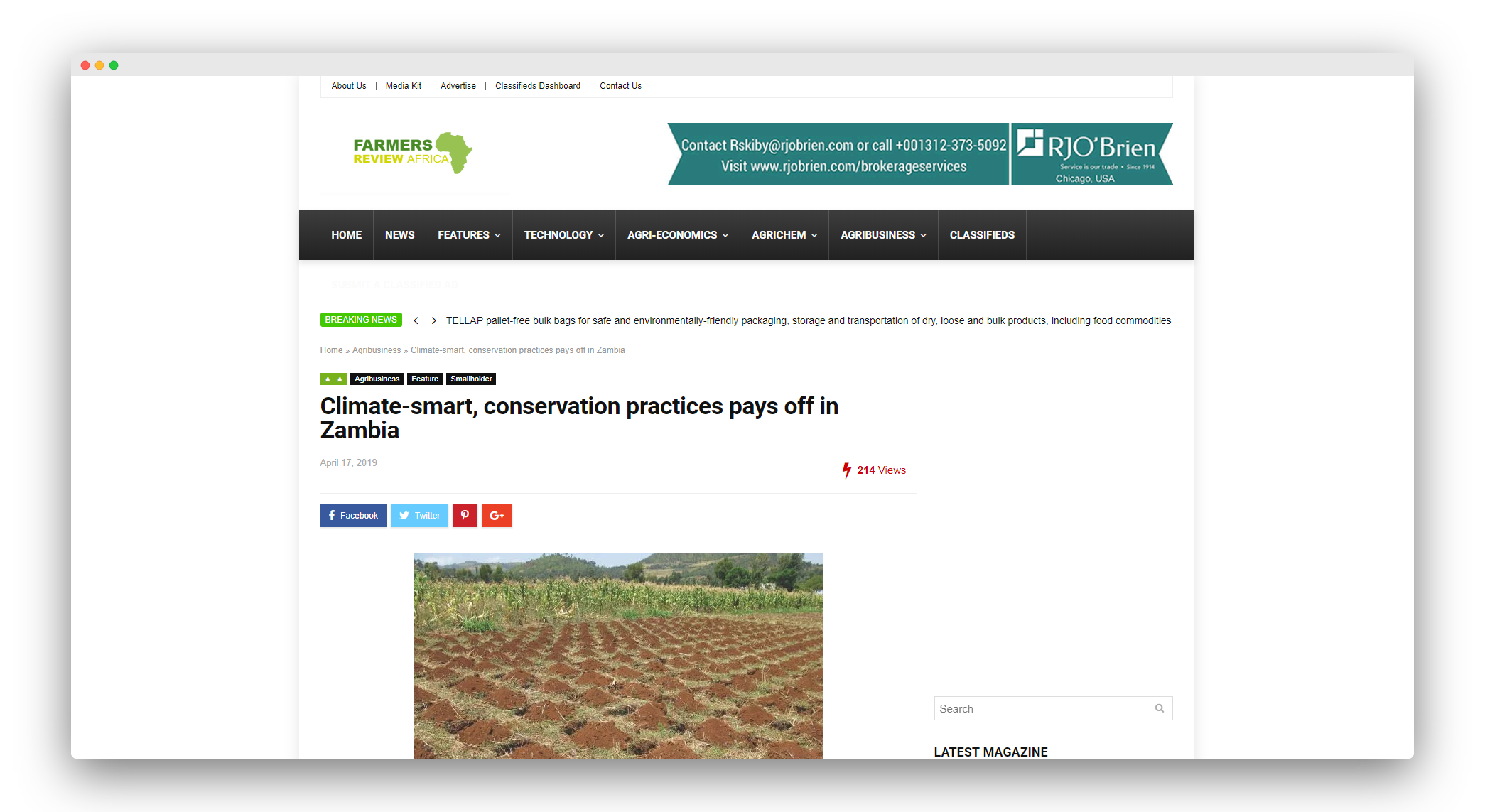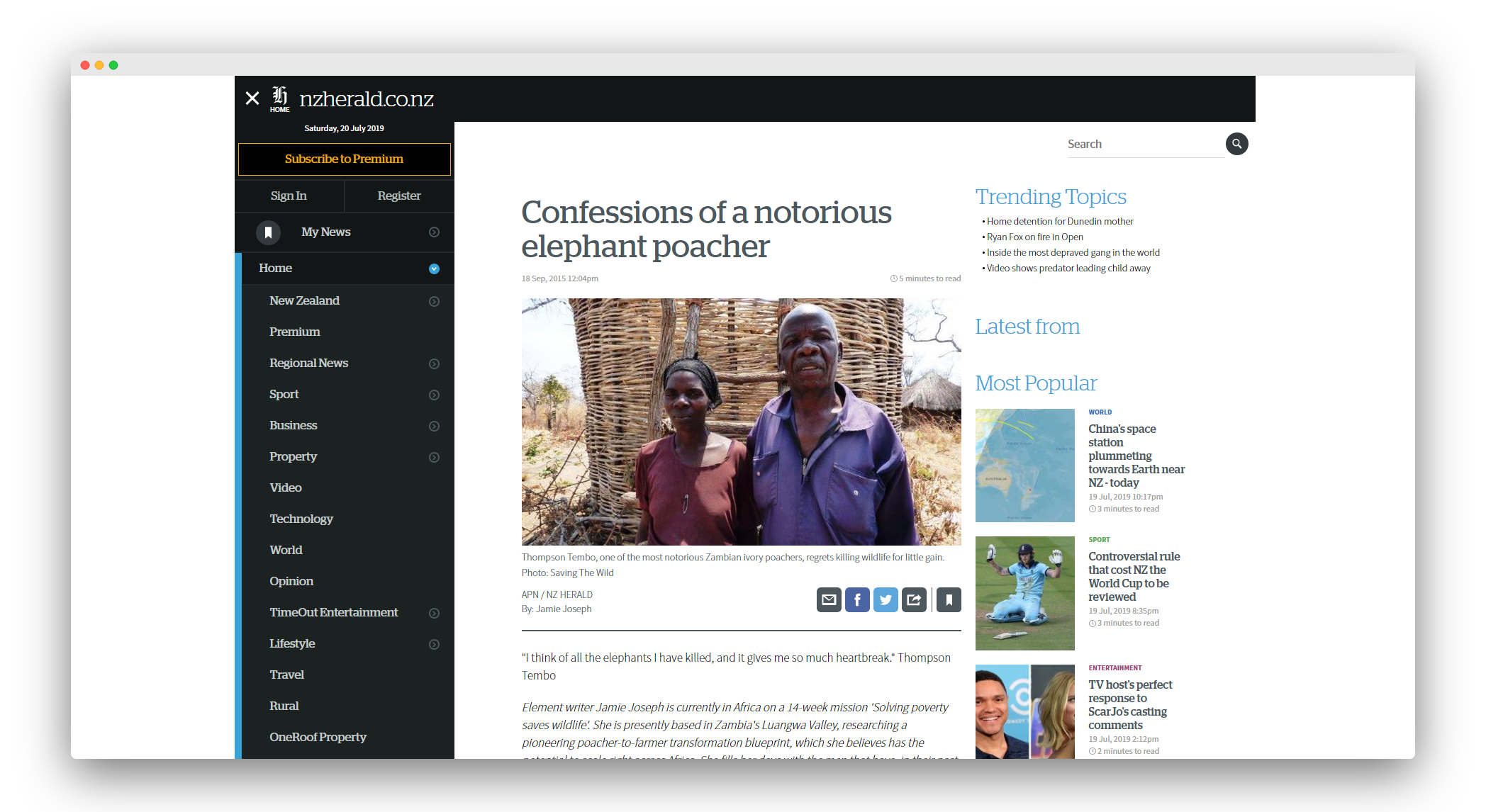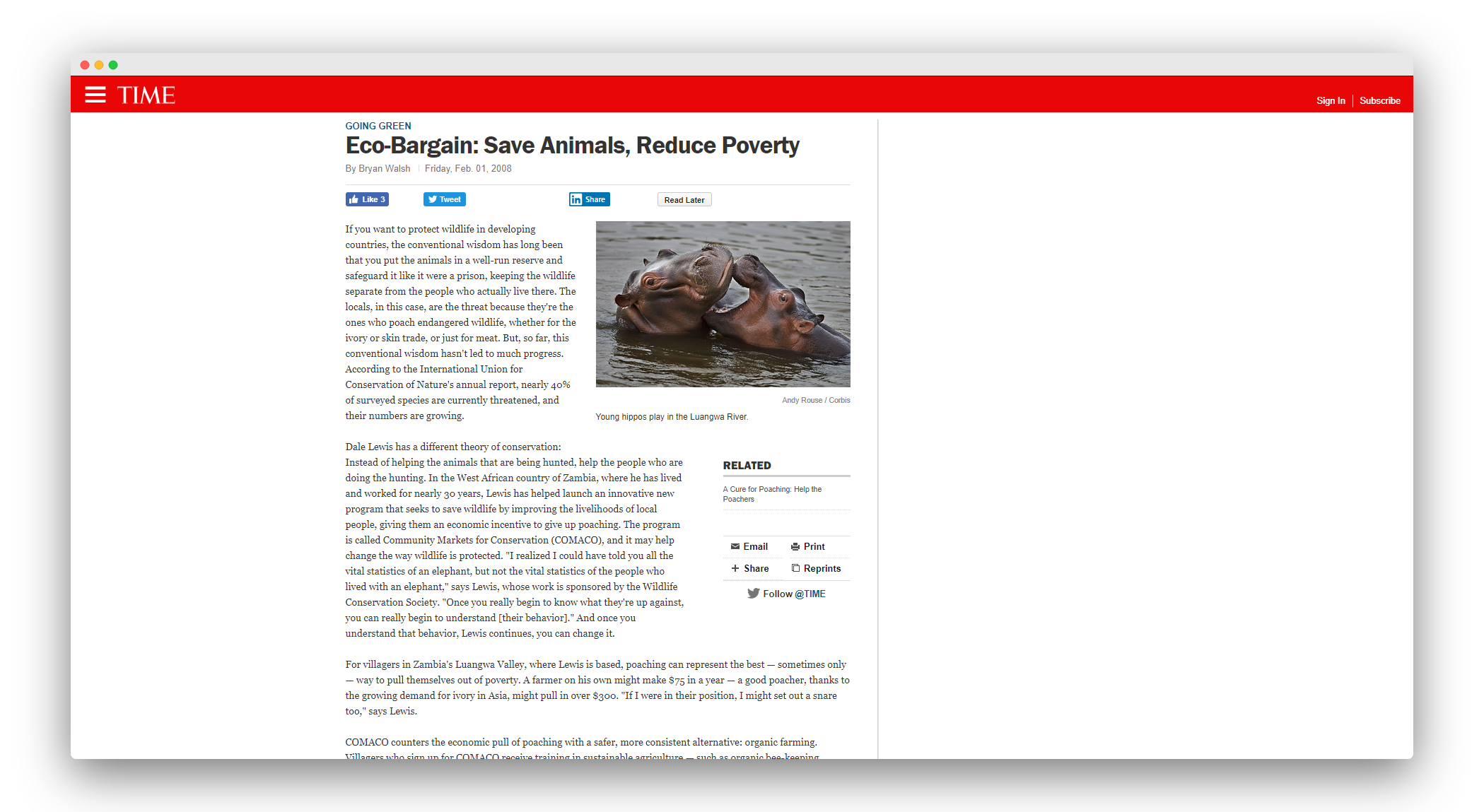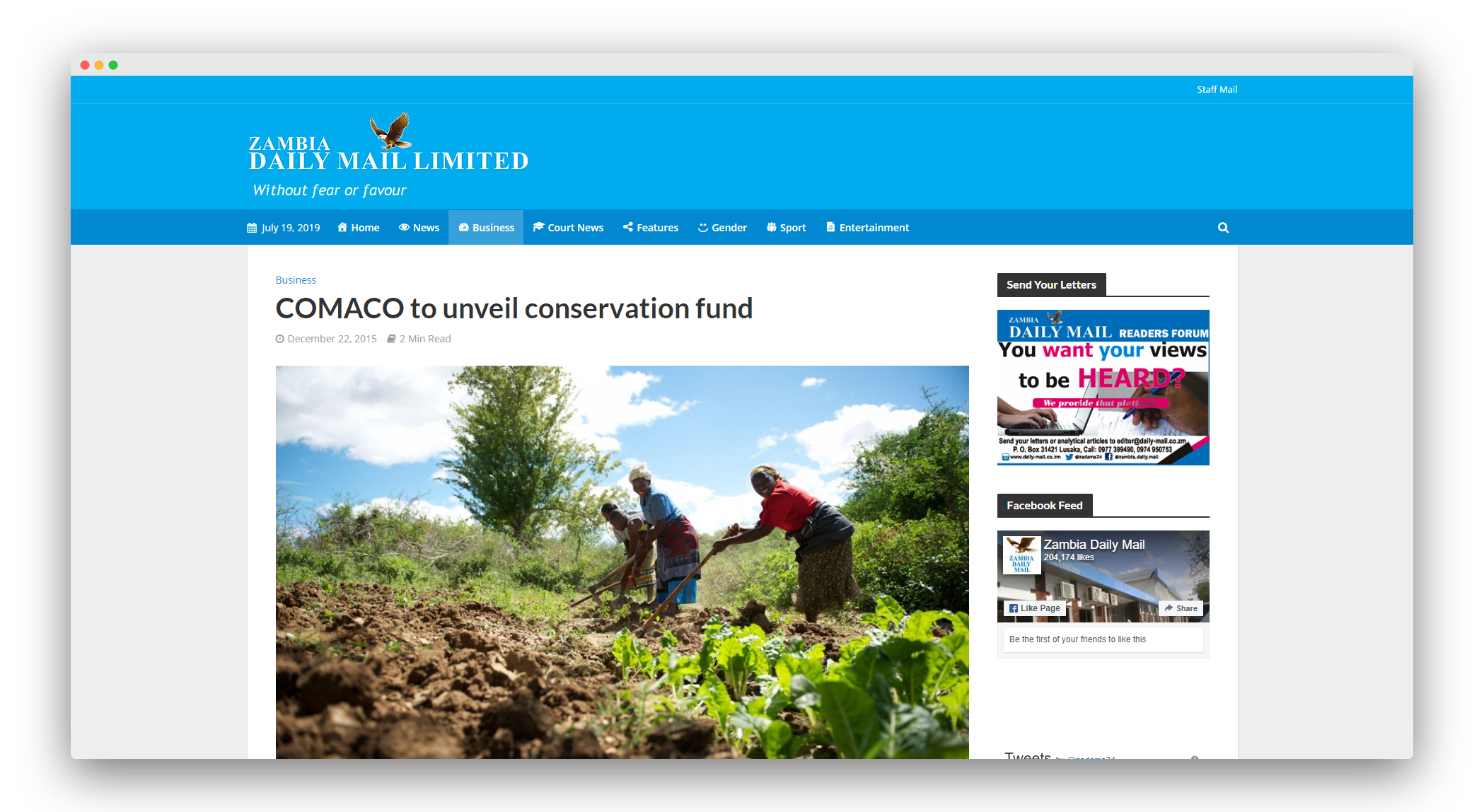Poacher to Producer
In Zambia, Community Markets for Conservation (COMACO) provides training and incentives to poachers seeking a new life and new livelihoods.
Organization/Employer
Community Markets for Conservation (COMACO)Position
Content Manager & Data AnalystYear
2015-2016Location
Luangwa Valley, ZambiaThe Challenge
Life as a Zambian smallholder farmer is incredibly difficult – families are socially and economically vulnerable especially during the growing season when food is scarce and money is even more scarce. For many living in the wildlife-rich Luangwa Valley of Zambia, these conditions turn many small-scale farmers to poaching, a livelihood which is as dangerous as it is lucrative.
The impact of poaching has been devastating. Between the 1970’s and the 1990’s, elephant numbers in the Luangwa Valley fell by more than half due to poaching. Researchers estimate that, at one point, poaching killed over 5,000 animals a year. The black rhino population, estimated at 13,000 in 1981, is now entirely extinct, and poaching continues to be a problem. You can read more about the complex social and economic factors contributing to poaching in the Luangwa Valley here.
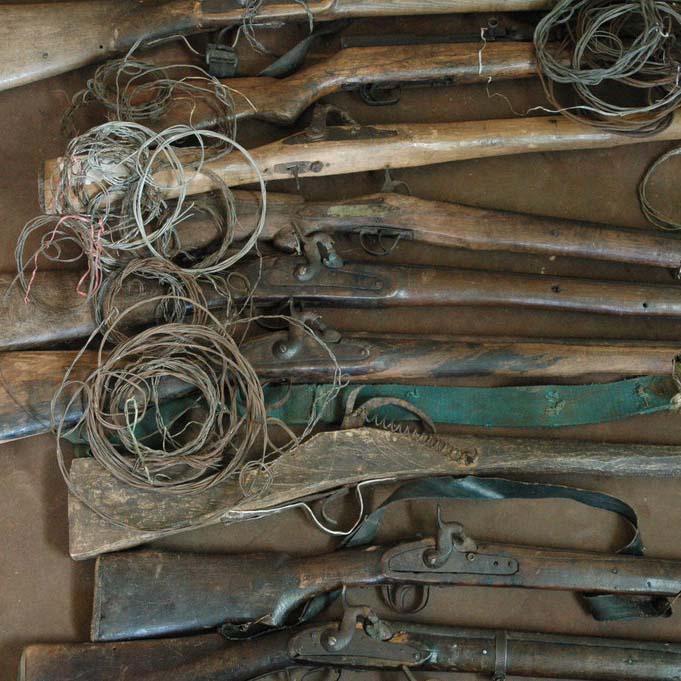
The Approach
COMACO’s approach to poaching is unique and refreshing in light of the typical stigma and demonization of these farmers who poach. COMACO (Community Markets for Conservation)) works with illegal wildlife poachers to offer alternative livelihood skills, including practices in climate-smart sustainable agriculture. Poachers and their communities, in exchange for COMACO’s services, sign Community Conservation Plans, Forestry Management Plans, and willfully surrender their snares and guns.
My Role
In my role as Content Manager and Data Analyst at COMACO, I supported staff overseeing the Poacher Reformation Program. I would frequently help develop conservation agreements and contracts, training manuals and presentations, and GIS documents.

